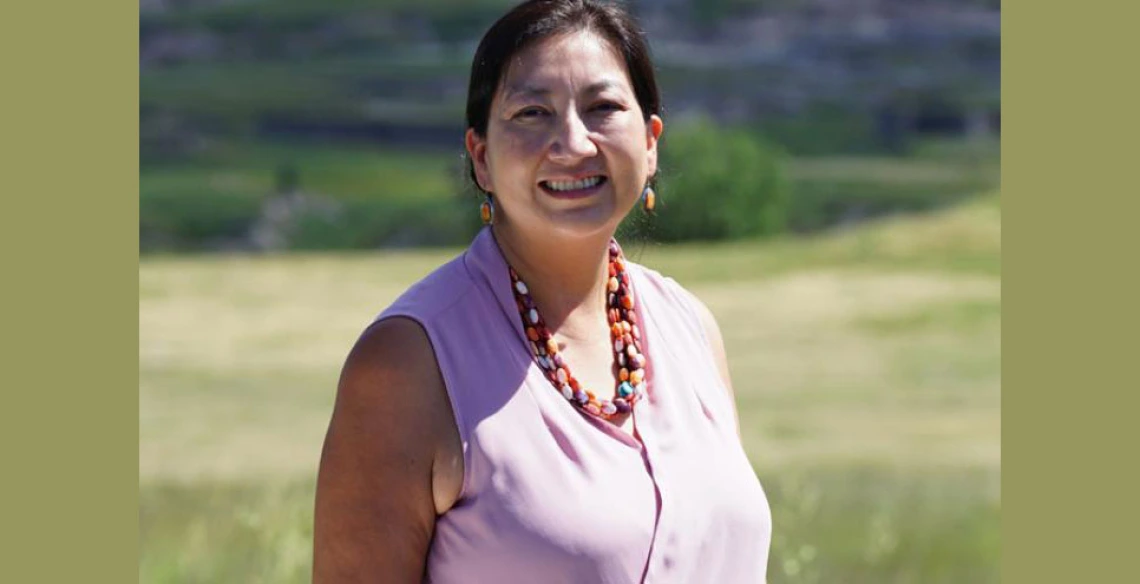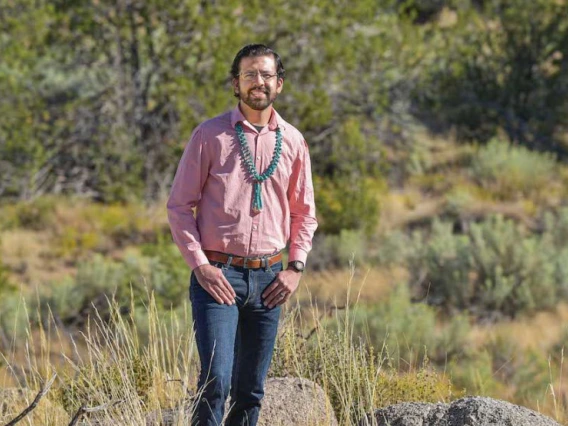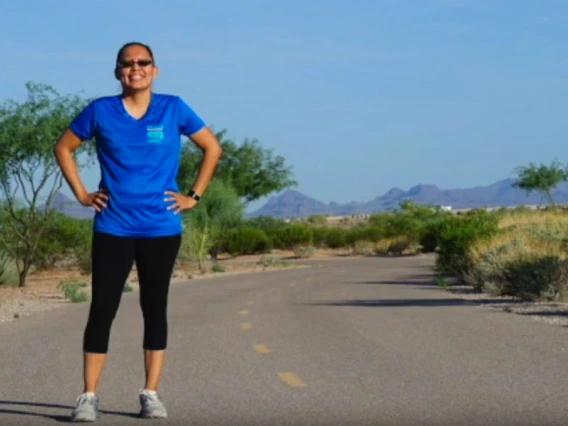Otakuye Conroy-Ben: AISES 2019 Technical Excellence Awardee
Sustainable engineering professor, Native student mentor and UArizona alumna recognized for wastewater research.

The American Indian Science and Engineering Society recognized Otakuye Conroy-Ben, who earned her PhD in environmental engineering from the University of Arizona, with the 2019 Technical Excellence award. (Photo: David Cournoyer / Winds of Change)
Otakuye Conroy-Ben’s environmental consciousness was awakened at a very young age. Growing up in Porcupine, South Dakota, on the Pine Ridge Indian Reservation, she could literally taste and smell the impacts people were -- or were not -- making on the natural world around her.
“I can still taste the water from the reservation. It was clean and not disinfected, and there were no chemicals in it,” said Conroy-Ben, Oglala Sioux. “I also saw the downside of pollution, where we didn’t have solid waste management and allowed garbage pits to be burned. I remember how much that would burn my eyes and nose.”
Though she didn’t know it as a young child, Conroy-Ben would devote her life work to researching human impact on the natural world and, in the process, use that understanding to promote the sustainable management of natural resources and better health. Today, Conroy-Ben is assistant professor of sustainable engineering and the built environment at Arizona State University, a tenure track position that combines teaching, research and service. A former member of the American Indian Science and Engineering Society board of directors and an AISES Sequoyah Fellow, Conroy-Ben is the recipient of the organization's 2019 Technical Excellence award.
A focus of Conroy-Ben’s research is wastewater, a topic she initially became interested in while she was obtaining her doctorate in environmental engineering at the University of Arizona. The U.S. Environmental Protection Agency allows municipalities and tribes to discharge sewage into surface water as long as a few contaminants are treated.
“I wanted to see about unregulated contaminants that get back into the water cycle because it’s discharged and possibly pulled into drinking water or could impact aquatic animals and recreation,” she says. “There are so many pollutants we don’t know a lot about.”
By the time she was ready for graduate school, Conroy-Ben wanted to make sure she would be a member of a larger Native student community.
“I only applied out West and selected the University of Arizona, which has a lot of Native students pursuing graduate education and plenty of undergrads to mentor,” she said. “That really helped me, not only to talk to others whenever I was struggling in grad school but to have that sense of community, like having drum groups on the quad, and things that remind me of home.”



